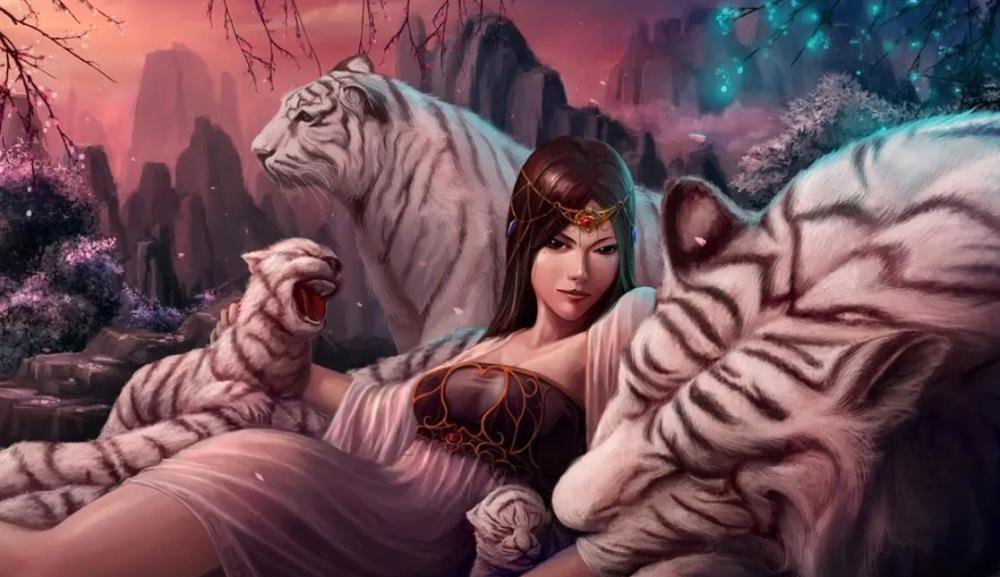Traditional culture is broad and profound, for thousands of years, the ancestors according to their own wisdom, their own life experience, life wisdom are summarized into a colloquial saying, in the way of word of mouth, passed on to future generations. These sayings have been influenced by traditional culture, not only as a symbol of folk wisdom, but also as a manifestation of the world outlook and values of the ancestors.
Many sayings actually have a very important guiding effect on our lives, production, and even interpersonal communication and dealing with people. For example, the old ancestor said that "it is better to meet the jackal than to approach the white tiger".
So, what exactly does this sentence mean? What do the so-called jackals and white tigers refer to?

First, let's look at the Jackal.
Jackals and wolves are more ferocious among animals. Moreover, both prey methods are relay chase and collective siege, winning with more. They are brutal and greedy, fierce and fearless.
It is precisely because of this characteristic that the ancestors compared the "jackals" to those brave and bad people. The ancients said that "the jackal is the way" as a metaphor for the evil. People also say "Jackal Ambition", "Jackal Tiger Leopard" and so on.
They are all using the metaphor of "jackal" to refer to the bad guys.
Second, let's look at the "White Tiger".
The meaning of the white tiger is much richer than that of the "jackal". In the earliest days, the white tiger referred to the stars in the sky. Later, people gradually gave the white tiger more cultural connotations.
For example, people think that the white tiger is a symbol of killing, so many famous generals in ancient times were considered to be white tigers, just like Xue Rengui was called "white tiger". The ancient warrior rune is also the image of the white tiger, called the tiger rune.
Moreover, the ancients also called the mountains that rose on the left and right sides of the tomb as the green dragon and the white tiger. At this point, the White Tiger had the meaning of orientation and guard. The same is true of the Yang House, and the White Tiger is also a word that indicates the direction in the Yang House, such as "The White Tiger Wears the Hall, and the Family Loses and Dies", "The White Tiger Builds the Green Dragon, and There Are Poor Generations", "It is better for the Green Dragon to be tall and high, and not to let the White Tiger suppress it" and so on.
And the white tiger in this sentence "I would rather meet a jackal than approach the white tiger" actually refers to property.
Hu Yaguang, the great-grandson of Hu Xueyan, wrote a book called "The Testament of Stability", which recorded such a sentence: Yan Hu's descendants said: "Don't go near the white tiger", and passed away.
What does this sentence mean? That is to say, Hu Xueyan called his children and grandchildren to the front and told him not to go near the white tiger, and he died when he was finished.
The "white tiger" that Hu Xueyan refers to is actually the same as the "white tiger" in the colloquial saying "rather meet the jackal than approach the white tiger", which alludes to property.
Therefore, this saying is that in life, it is better to meet some evil people like jackals than to be too greedy for money.
As the saying goes, "all the hustle and bustle in the world is for profit, and all the hustle and bustle in the world is for profit", so why did the old ancestors say that money is even more terrible than the wicked?
In fact, this is because the greed caused by money will be more terrible than when you meet the wicked. This is the true meaning behind Lao Tzu's phrase "I'd rather meet a jackal than approach a white tiger."
In fact, there is another interpretation of this sentence, that is, whether it is "jackal" or "white tiger", it refers to people. Of course, we are more inclined to believe here that the former explanation is not the latter.
Which interpretation do you prefer to say, "Prefer to meet a jackal, not a white tiger?"